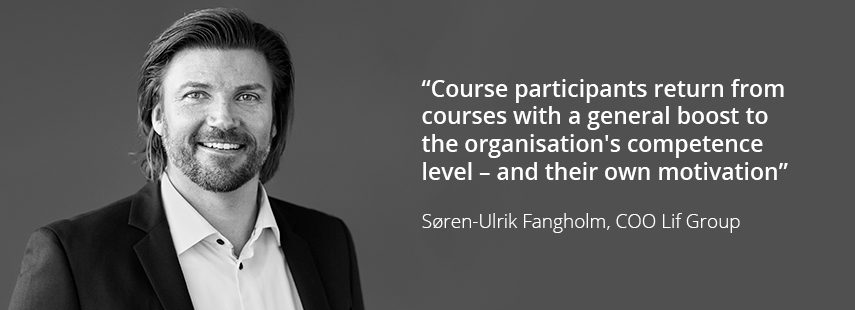Access to relevant competencies has never been more important
Medical products are Denmark’s largest export area and the number of employees in Life Science is growing rapidly compared with other industries. The success speaks for itself; the questions is how we secure the right talents to retain it?
An increased need for labour and new competencies is already reality for most pharma companies. The challenge will grow in the coming years, as export is expected to grow. Denmark is in fierce competition on the international stage in terms of being able to attract and retain the right talents. This may challenge Denmark’s and the Nordic countries’, international leadership position in the life science field.
30.000 new jobs before 2030
Data from Statistic Denmark show that the number of employees in the pharmaceutical industry has increased by 122% in the last twenty years, in contrast to other industries where the total employment has fallen by 25% (Source: Statistics Denmark NABB36). A tendency that seems to continue.
Life science has the potential for billion growth in the coming years, but if the potential is to be realised it will require up to 30.000 new jobs in Denmark alone.
”Attracting, developing and retaining competent employees has always been important, but is peaking now, as we wish to maintain the leading position in life science that we are proud of in Denmark,” says Søren-Ulrik Fangholm, COO, Lif Group.
Difficult to attract and retain the right competencies
”Skilled Market Access employees don’t grow on trees”. ”We limit our own development opportunities because we’re stuck in professional silo thinking.” These are some suggestions as to where the shoe pinches when we talk about attracting and retaining the right competencies.
The statements were voiced at a Meetup in the Life Science House. Here, 250 life science professionals were gathered for an afternoon of debates on the future of life science. And there is good reason to examine opportunities and challenges for the industry the coming years.
At Roche the employees stay
There is no single answer to what it takes to ensure competent employees, but Roche is very successful in both attracting and retaining competent people in the industry. Linda Vestergaard, HR Director at Roche, believes that in addition to Roche’s corporate culture and a focused effort, the success is due to the fact that Roche has created a safe way for their employees to explore development opportunities.
“We have a development program that encourages people to explore new fields. An employee can spend up to 20% of their working hours on development. This gives our employees the opportunity to contribute to a new context in the Roche network, to enter into unfamiliar collaborative relationships or get a taste of another role in the organisation,” says Linda Vestergaard.
Some years back, Roche went through a comprehensive reorganisation. You can read more about it in the article Which Competencies Will Boost Your Career in the Future? where Linda Vestergaard shares experiences about gearing the company to a more changeable reality.
Education as a development path
Many life science organisations use the broad range of courses at Atrium to give their employees an opportunity to explore new fields.
“In our experience, course participants upgrade their skills with a view to a new orientation. Clarification is central and at the same time an education programme within e.g., Market Access or Medical Affairs can provide a general boost to the organisation's competence level and help establish or expand networks in the professional field,” says Søren-Ulrik Fangholm.
Atrium’s courses match life science industry developments
The changes taking place in the industry are also reflected in Atrium’s range of courses. For examples, Medical Affairs has recently been established as an independent course discipline because competencies associated with that function are increasing in importance in the industry.
“At Atrium, we are constantly in dialogue with managers and employees across the entire life science value chain. At the same time, we are open to proposals for new knowledge and insights from both our advisory boards, course leaders, lectures, and course participants. It gives us a good indication of the development and needs of the market,” says Søren-Ulrik Fangholm.
What is it about your organization that attracts new talent to help you stay in the lead? 6 pieces of advice for the Life Science Industry. Attracting the right employees is a critical differentiator for modern businesses today. Find out if you are ready for the new workforce. Taking a course isn’t just a way to get a professional knowledge update – it’s also a motivation boost. Find the course that ensure you have the right competencies. Was this relevant for you? In that case we have these 3 recomendations for you:
Hi! Sign up for our newsletter and receive more articles with tips and thoughts on the influence of life long learning on your motivation and career development.
